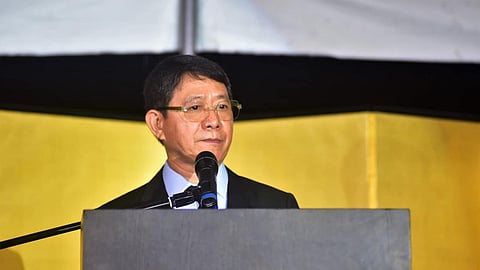
- NEWS
- the EDIT
- COMMENTARY
- BUSINESS
- LIFE
- SHOW
- ACTION
- GLOBAL GOALS
- SNAPS
- DYARYO TIRADA
- MORE

The National Security Council on Monday announced that the newly signed Reciprocal Access Agreement (RAA) between the Philippines and Japan would facilitate greater interoperability and mutual support between their armed forces.
National Security Adviser Eduardo Año welcomed the formal signing of the RAA in Malacañang, calling it a significant stride in the strategic partnership and a testament to the “strong ties” between both countries.
“This agreement, achieved in less than a year of dedicated negotiations, underscores our shared commitment to enhancing regional security and defense cooperation,” Año said.
“It will facilitate greater interoperability and mutual support between the Armed Forces of the Philippines and the Japan Self-Defense Forces, bolstering our collective capacity to respond to common challenges,” he added.
With the signing of the RAA, Año said the Philippines reaffirmed its commitment to upholding international law and promoting stability in the Asia-Pacific region.
“This agreement builds upon decades of collaboration and mutual respect, reflecting our shared values of democracy, rule of law, and respect for sovereignty,” he added.
The national security adviser emphasized Japan's “invaluable” contributions to the maritime security and defense capabilities of the Philippines.
“This agreement not only strengthens our bilateral defense relations but also enhances our ability to address emerging security threats,” said Año.
“It underscores our mutual responsibility to safeguard maritime domains and uphold the rights of all nations in accordance with international law,” he added.
Año said the RAA would stand as the "cornerstone" of both nations’ shared commitment to peace and stability as the two countries navigate a dynamic and evolving security landscape, characterized by strategic challenges in the region.
“It opens new avenues for joint exercises, capacity-building, and cooperation in armed forces modernization,” he noted.
“Together with Japan, we will continue to promote a free and open Indo-Pacific region, underpinned by respect for international rules and norms,” he added.
“We commend the dedication and hard work of both Filipino and Japanese diplomats and officials in bringing this agreement to fruition in record time.”
